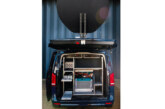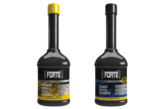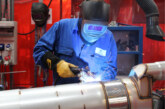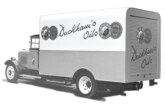CVW investigates the issue of counterfeit oils with Andrew Goddard, Chairman of the Verification of Lubricant Specifications (VLS).
Counterfeiting is an issue that affects many different vehicle parts and accessories, and lubricants are no exception. According to the Government’s guidance on counterfeit parts published in July last year, it is difficult to estimate the exact size of the problem. However, industry figures suggest that worldwide, the market could run into billions of pounds. A recent study from the European Union Intellectual
Property Office – which focused on the market for counterfeit tyres and batteries inside the EU – estimated that over €2 billion is lost every year in those parts alone.
What is counterfeit oil?
Counterfeit oil is a product that is being presented as something it isn’t in order to make an illicit gain. By passing off poor or sub-standard quality products as being original or authentic, fraudsters make money by charging you for something that is not what it appears and is often unfit for purpose. Modern vehicle engines are highly complex. They require sophisticated lubricants that are produced by advanced chemistry, and backed by the investment of millions of pounds, dollars or euros by major additive companies. These additive companies use extensive bench, laboratory or real-life engine testing to guarantee performance standards and safety. Although the vast majority of lubricants on the market are genuine, counterfeit oils might include:
■ Virgin base oil with a sub- standard additive pack
■ Virgin base oil with no additive pack at all
■ Used oil that has been repackaged and presented as new oil
■ Re-refined product that is unsuitable for its stated application
Compared to standard formulations, counterfeit products might have fewer or even no additives at all. This can significantly affect the lubricant, resulting in poor or possibly even dangerous performance when compared with genuine products. Using counterfeit oil could accelerate wear in gears and bearings, leading to increased maintenance costs and, if left unchecked, eventual engine failure. This may well cost many times more than the original price of the ‘cheap’ oil to rectify.
If a product looks too good to be true, it probably is
Workshop owners, mechanics, technicians and end users alike can all take a series of common-sense steps to reduce the risk of buying and using a counterfeit product:
Purchase lubricants from reputable sources, such as official distributors or well- regarded motor factors. Avoid purchasing finished lubricants from unofficial sources or less reputable internet sites where the source of the product is unclear.
Avoid products that appear to be heavily discounted or are being sold in a hurry such as ‘fire sales’ or ‘stock must go’ end of line promotions.
Check for authentic marks on packaging such as batch codes. Most reputable lubricant blenders use batch codes as part of their ISO quality assurance processes. If a product doesn’t have a batch code or authentic serial number, there is a greater risk that it might not be genuine.
Check any packaging and product labels carefully. Fraudsters will aim to maximise revenue at minimum cost, so they may use lower quality packaging or labelling. Does the packaging look and feel of appropriate quality as you would normally expect? Looking at the product label, is the spelling and use of grammar correct? Is the colour on the label an exact match against previously purchased authentic products, or are the colours slightly washed out? Are the images and text clearly printed or a bit blurred, and not as sharp and well-defined as they could be?
Ask for technical and safety data sheets. Reputable suppliers should have no problem producing these or advising you where you can access them. Suppliers trying to pass off counterfeit lubricants may be evasive about providing this important information.
Across the aftermarket, fraudsters are becoming more sophisticated and it can be increasingly difficult to tell the genuine from the fake. Taking these simple steps can ensure counterfeit products don’t hurt your end users, cause unnecessary breakdowns or damage your reputation.
Reporting concerns
If you have any worries about a product, you can report it to VLS by calling 01442 875922 or emailing admin@ukla-vls.org.uk. VLS investigates complaints about oil specifications by independently checking compliance to industry standards and performance claims within the UK marketplace. Working with oil companies, relevant authorities and industry bodies, the organisation pursues incorrect or false product quality and standards to ensure they are withdrawn from the market or brought into compliance.










